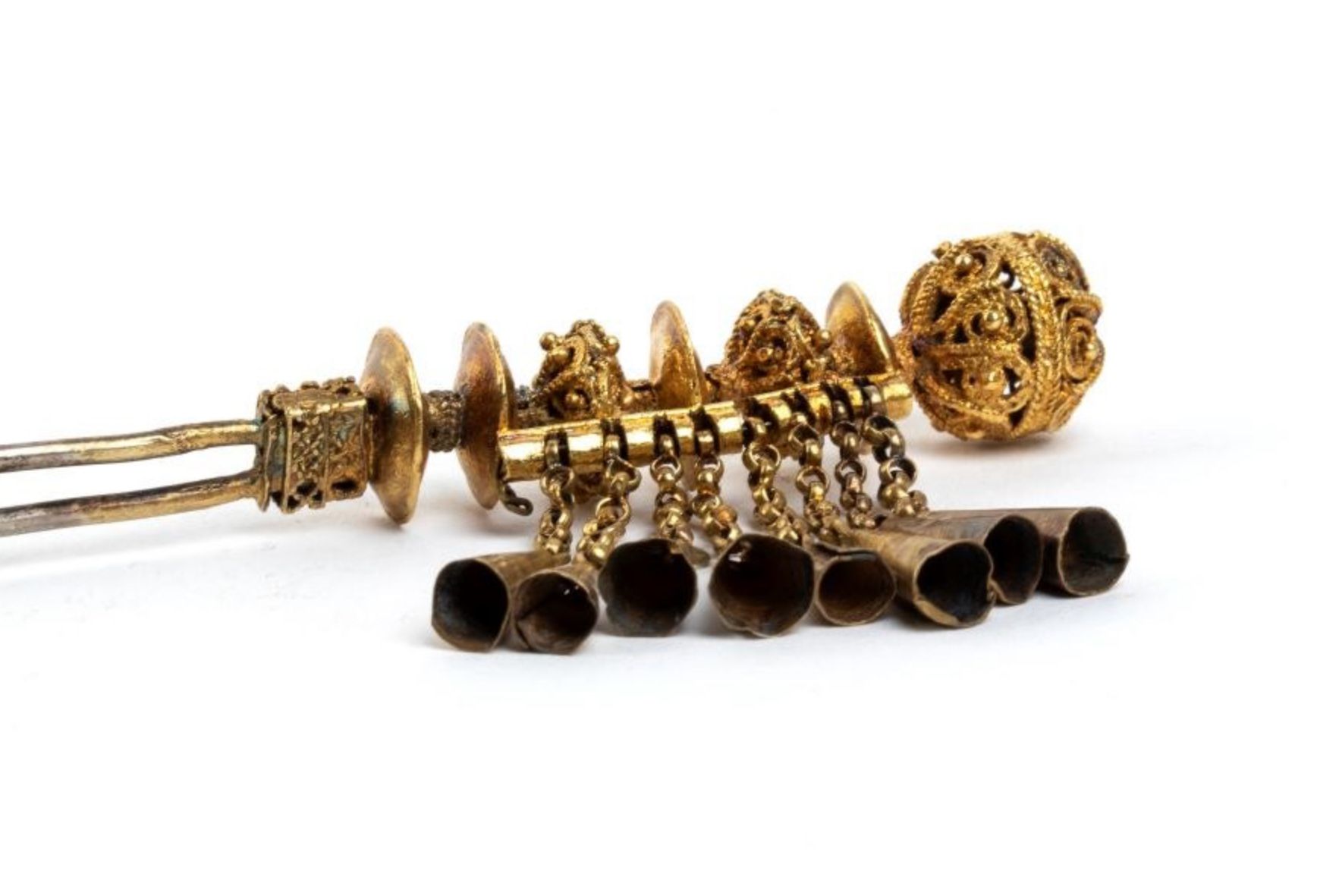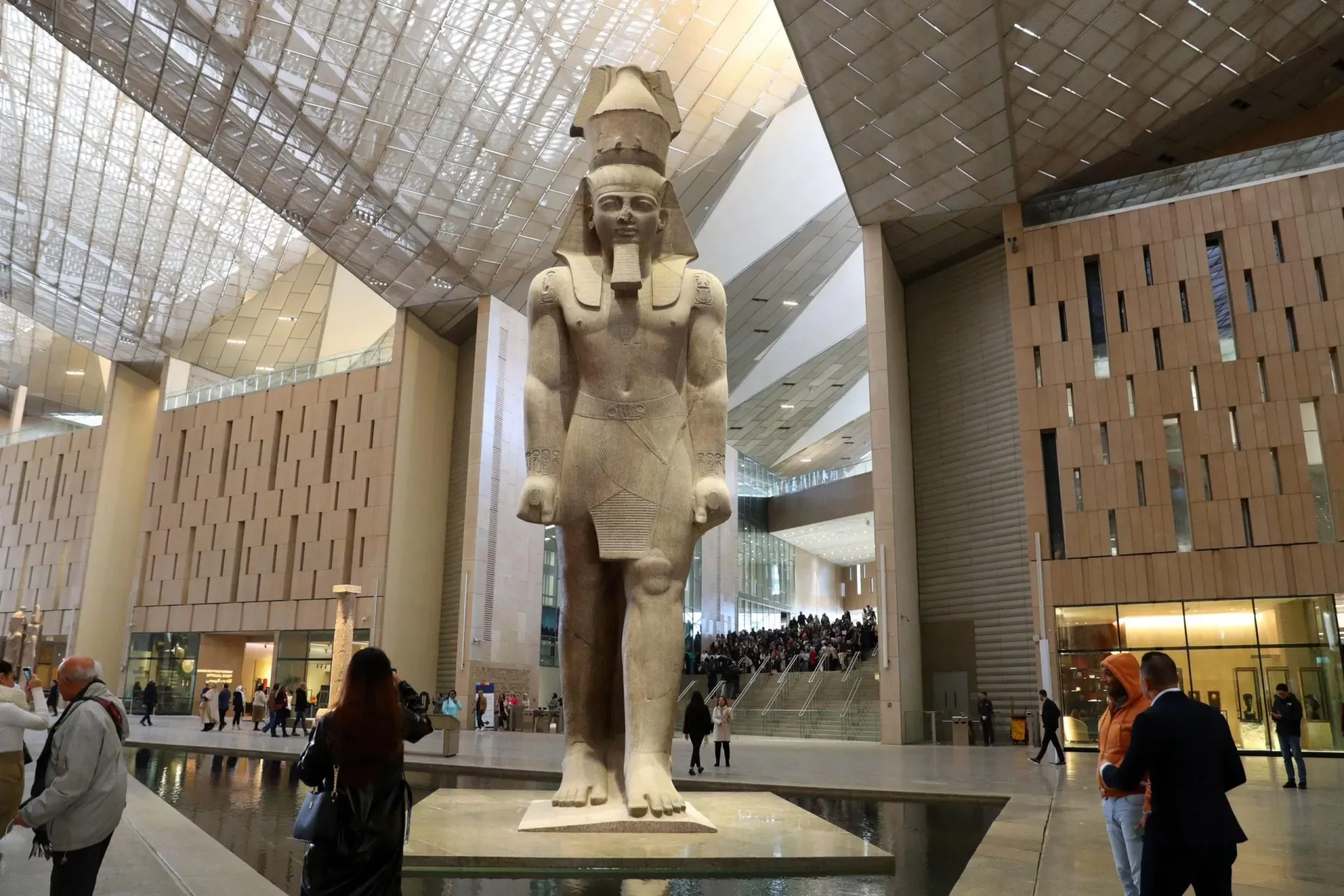Cultural Restitution
SHARE ARTICLE
No British Museum chairman has ever declared there’s a “deal to be done” by sharing the Parthenon Marbles. Neither has the V&A’s Director ever suggested the time may have come to review Britain's National Heritage Act. But this week, both museum leaders did just that.
Could we really be witnessing the first signs of a seismic shift in national museums policy towards restitution, or will statements made in the media this week by George Osborne and Tristram Hunt prove another false dawn?
Since he become Chairman of the British Museum’s board of trustees in June 2021, George Osborne, former Chancellor of the Exchequer, has kept his Parthenon cards close to his chest. By tradition, the Chairman and trustees prefer to let the Director do the talking. Just like other British Museum Directors, Hartwig Fischer, has consistently rejected the idea that Greece could be the legitimate owner of the Marbles. In a ludicrous defence of the Museum’s position in 2019, Fischer even said their removal to London could be seen as “a creative act”.
While never closing the door to a loan, Fischer has always insisted that Greek recognition of the British Museum’s ownership must be a prerequisite for any future loan. This is one condition that has never been acceptable to Greece.
But Osborne’s statement in an interview with Andrew Marr for LBC radio this week hints he might be prepared to cut through the traditional BM stance and consider a sharing arrangement of the sculptures between Athens and London. That is, he emphasised, if "we both approach this without a load of preconditions, without a load of red lines”.
“Sensible people could arrange something that makes the most of the Parthenon Marbles, but if either side says there’s no give at all, then there won’t be a deal.”
George Osborne, British Museum Chairman
So, is recognising the British Museum's ownership still a red line that cannot be crossed? After all, Osborne's statement comes just weeks after British officials at UNESCO talks in May dismissed the significance of planned talks between Ministers from Greece and the UK about returning the Marbles. If both parties were to agree to remove this contentious precondition over legal ownership of the sculptures, could the more pragmatic arrangement involving rotating loans that we've recommended at Returning Heritage break this long-running impasse? We believe it can.
But let's not run ahead of ourselves. Osborne also added that he cannot “talk for all of the trustees” and we have no idea what the other trustees might think of sharing one of the Museum’s greatest cultural attractions. Was Osborne speaking out of turn or can he really bring the other trustees around to his point of view?
Throughout Boris Johnson's period in office, the government has been insisting it’s the trustees not the government who are responsible for deciding the future of the Marbles. This is a curious deception, as everyone knows - including the government itself - that any change in the Marbles' ownership would involve amending the British Museum Act. And this is something only Parliament can deliver. However, Osborne's idea to share the Marbles - an alternative to transferring the rights of ownership - could be delivered without changing the Act. Loan arrangements are permitted within the Act and if this precondition that Greece must recognise British Museum ownership is waived altogether, an agreement to share can then be packaged as a loan. This lets government off the hook for taking responsibility for the future of the Marbles and is consistent with their vocal transfer of responsibility to the trustees. All the trustees have to do is agree to remove the precondition from the Museum’s own Collections Policy.
With supporters of the British Committee for the Reunification of the Parthenon Marbles planning a protest at the British Museum this weekend (18 June), the Museum's trustees should look closely at this opportunity to formalise a viable solution to this long-running saga, where both parties and the global exhibition public are the winners.
Meanwhile, over at South Kensington the V&A’s Director, Tristram Hunt, has made his own surprising U-turn. Questioned briefly on BBC Radio 4 this week about his views on repatriation, Hunt shifted the ground by saying maybe it’s time to review the National Heritage Act. Introduced in 1983, the Act prevents the V&A’s trustees (together with those of the other museums and collections governed by this Act) from de-accessioning objects, unless they are replicas or damaged beyond repair.
"My view is that we are coming up to the 40th anniversary of [the National Heritage Act] and it might be time for parliamentarians to think about how the Act works in the current era," he said.
"It should be the responsibility of trustees to make the case for what should and should not be in their collections and at the moment they don't have that right because the 1983 Act means they are legally unable to do so."
Tristram Hunt, Director V&A Museum
The V&A has come under sustained pressure in recent years from countries such as Ethiopia that have been requesting the return of objects looted by British forces from Maqdala in 1868. The then prime minister William Gladstone urged these objects should “be held only until they could be restored”.
In previous statements, Hunt has made his opposition to returning such objects and to the very concept of decolonisation abundantly clear: “For a museum like the V&A, to decolonise is to decontextualize”. Once describing the process towards restitution as merely "identity politics", he has also said the "cultural left" should stop regarding "museums as reactionary vestiges of the colonial past with looted collections".
So, will Hunt's apparent new-found optimism for trustee autonomy really lead to a genuine push for change in current legislation that prohibits disposals and repatriation? Or will it flounder, worn down by governmental procrastination, just as it has in France, five years after President Macron declared "African heritage can't just be in European private collections and museums"? Precisely what Osborne and Hunt deliver will be watched very closely.
After this was written......
Members of the group known as the British Committee for the Reunification of the Parthenon Marbles went ahead with their protest at the British Museum on 18 June alongside members of the Houses of Lords and Commons. Read more here. Meanwhile, speaking to The Daily Telegraph, Prof Paul Cartledge of the British Committee accused George Osborne of "misdirection and disinformation", insisting that nothing less than full repatriation would be acceptable to Greece.
Photo: Tristram Hunt, Director V&A
Courtesy of Getty Images
More News



